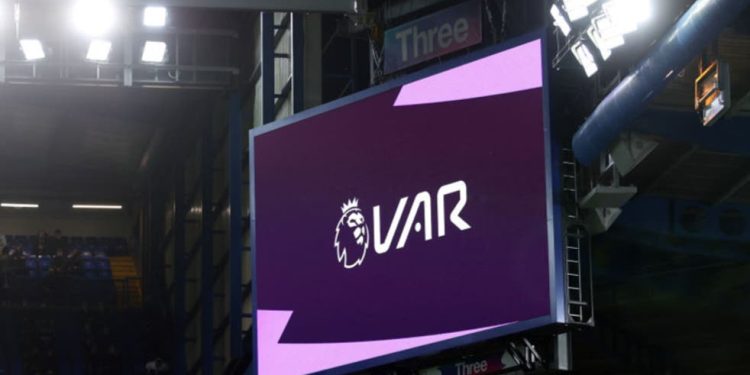Welcome back to the VAR corner.
We were focused on the AFCON so we had eyes away from England. Now that the festival of football is over and Senegal are African champions, we can get back to our weekly dose of VAR controversy.
Our incidents this week are Craig Dawson’s equalizer against Leicester, Mohamed Salah’s penalty shout against Burnley, and Ollie Watkin’s disallowed goal against Newcastle.
The incident: West Ham play a stoppage time corner and Craig Dawson “heads” it in. Replays show it hit his shoulder.
The issue here lies with where the ball hits his arm. IFAB clearly defines which part of the arm is a handball or not.
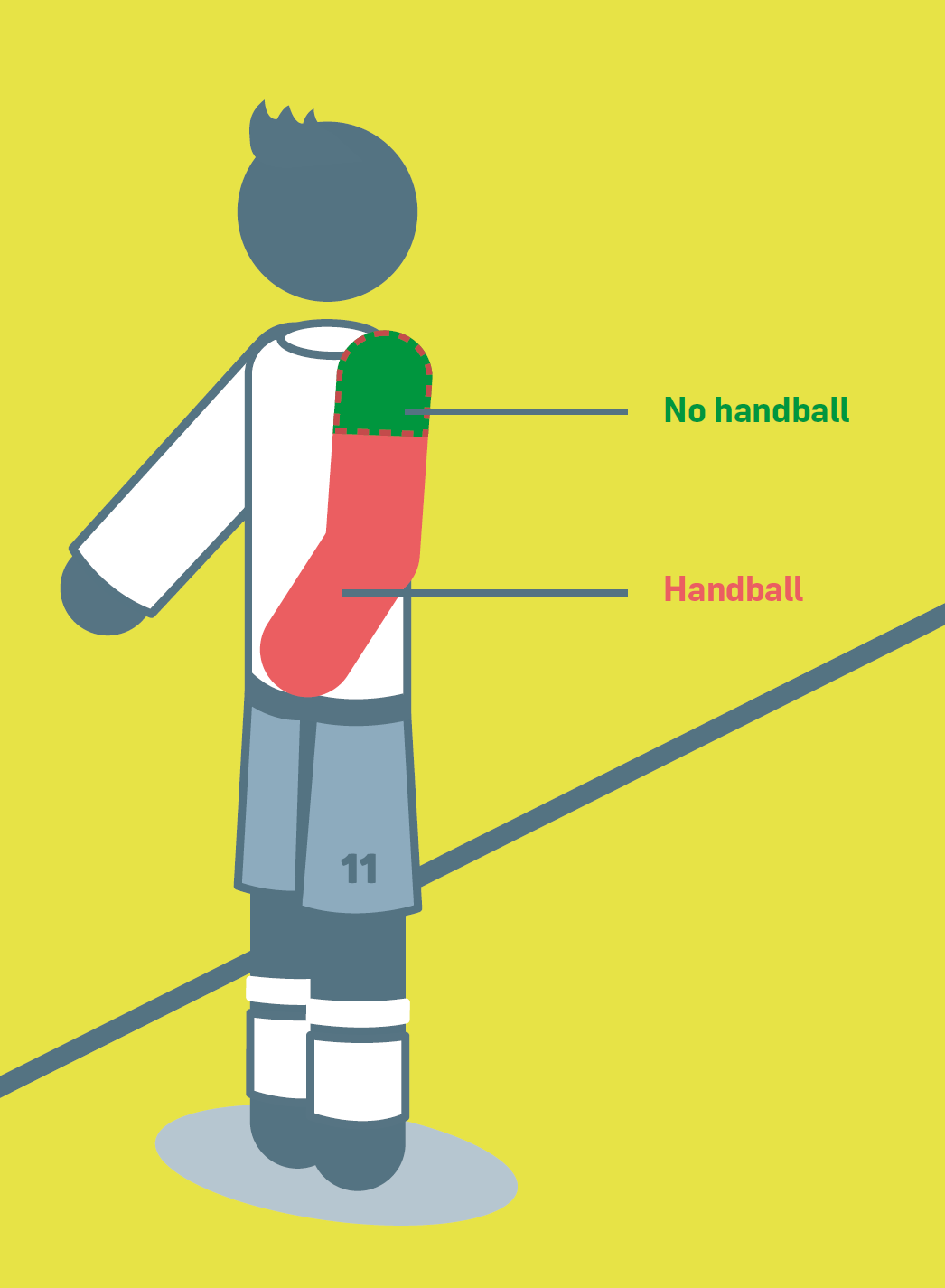
According to Law 12 these are the incidents in which a handball is an offence.
As stated in the Laws of the Game: For the purposes of determining handball offences, the upper boundary of the arm is in line with the bottom of the armpit. Not every touch of a player’s hand/arm with the ball is an offence.
It is an offence if a player:
- deliberately touches the ball with their hand/arm, for example moving the hand/arm towards the ball
- touches the ball with their hand/arm when it has made their body unnaturally bigger. A player is considered to have made their body unnaturally bigger when the position of their hand/arm is not a consequence of, or justifiable by, the player’s body movement for that specific situation. By having their hand/arm in such a position, the player takes a risk of their hand/arm being hit by the ball and being penalised
- scores in the opponents’ goal: directly from their hand/arm, even if accidental, including by the goalkeeper immediately after the ball has touched their hand/arm, even if accidental.
Therefore, if it was deemed a handball the goal would have been struck off, however it looked to be above the sleeve line therefore the goal was given. Leicester will feel hard done by but I believe the officials made the right decision.
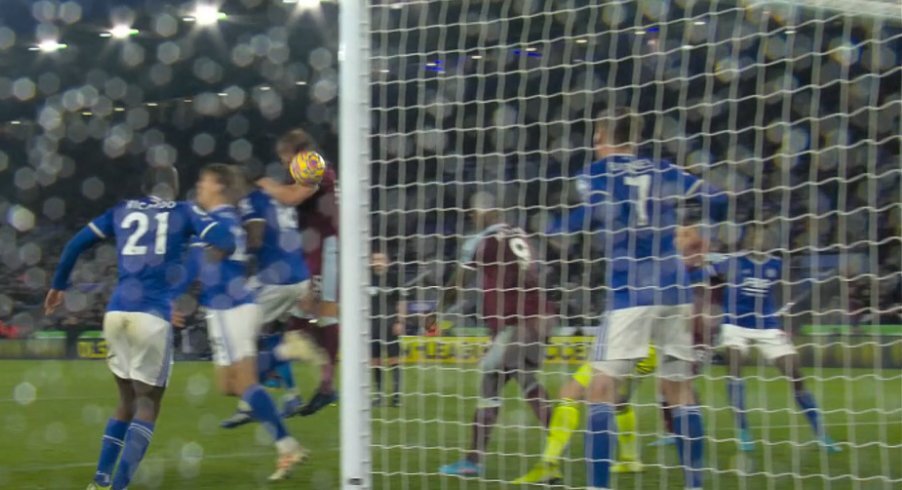
The incident: Salah turns in the box and is caught by Wout Weghorst, he goes down and a penalty is not given
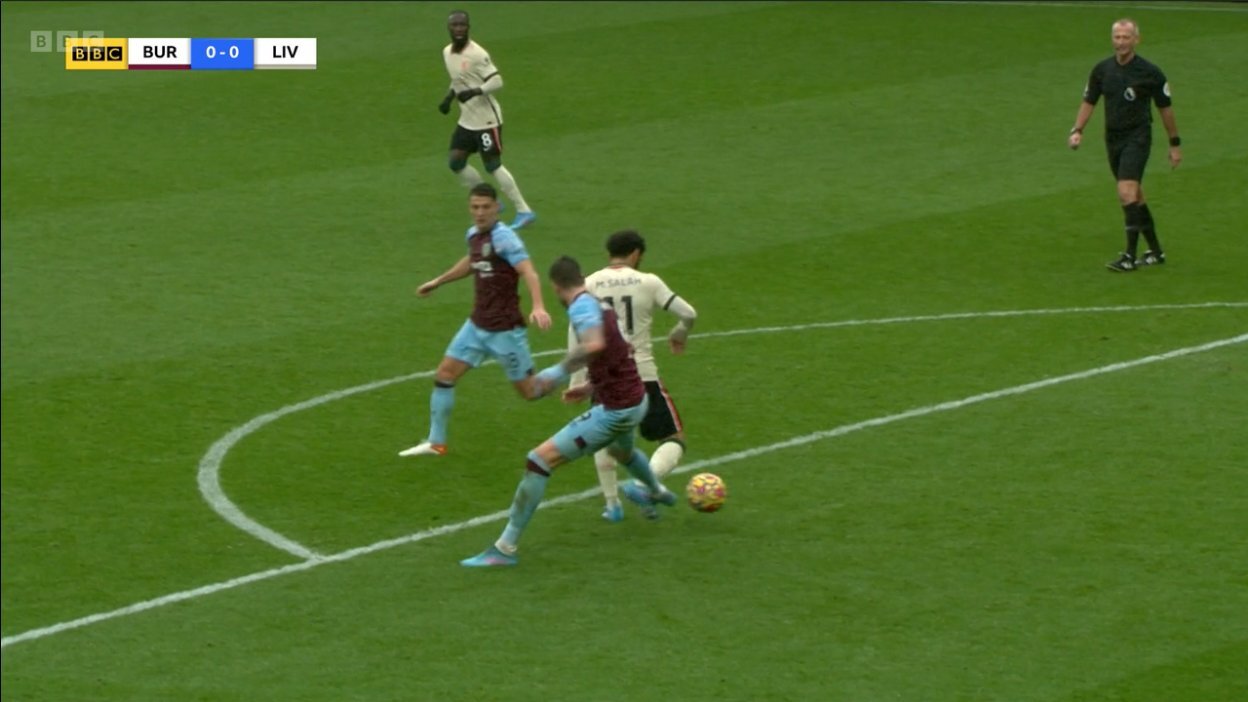
Law 12 states:
A direct free kick is awarded if a player commits any of the following offences against an opponent in a manner considered by the referee to be careless, reckless or using excessive force:
- charges
- jumps at
- kicks or attempts to kick
- pushes
- strikes or attempts to strike (including head-butt)
- tackles or challenges
- trips or attempts to trip
If an offence involves contact, it is penalised by a direct free kick.
A penalty kick is awarded if a player commits a direct free kick offence inside their penalty area or off the field as part of play as outlined in Laws 12 and 13.
This was a clear trip on Salah, and I was surprised the penalty was not given. VAR must have deemed it was not a clear penalty therefore the penalty was not given. This was a poor decision and Salah was unlucky not to win the penalty.
The incident: Watkins receives the ball in the 6 yard box and equalizes for Aston Villa, after a VAR check the goal is disallowed.
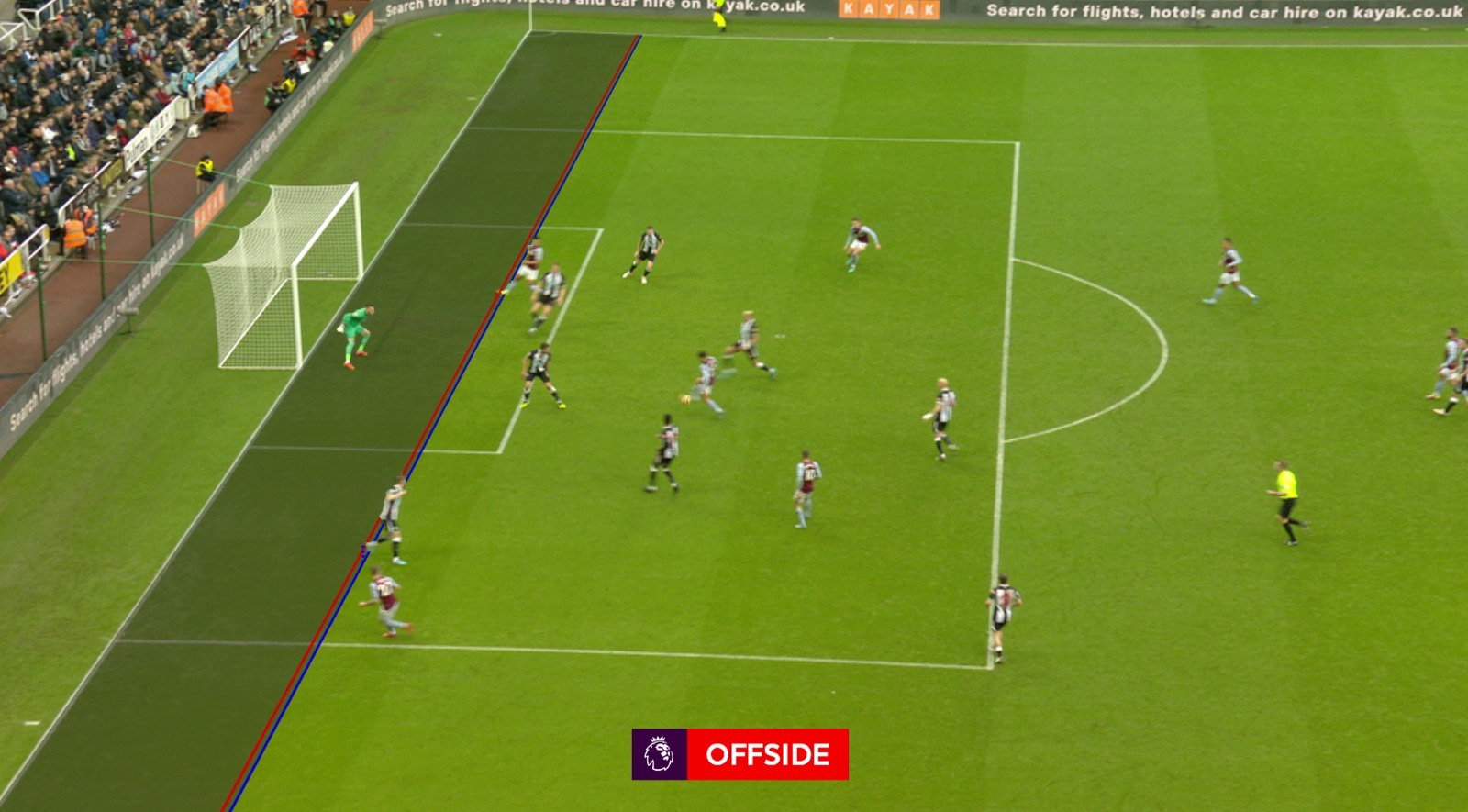
This is probably the hardest decision of all for the referees. Watkins seems to have been played on by the full back, however upon closer inspection he is marginally offside. The decision is made even more difficult because the full back’s foot is in the air making it harder to create the lines to make the decision. Ultimately based on the lines drawn Watkins was offside and Newcastle have a precious 3 points in their fight for survival







